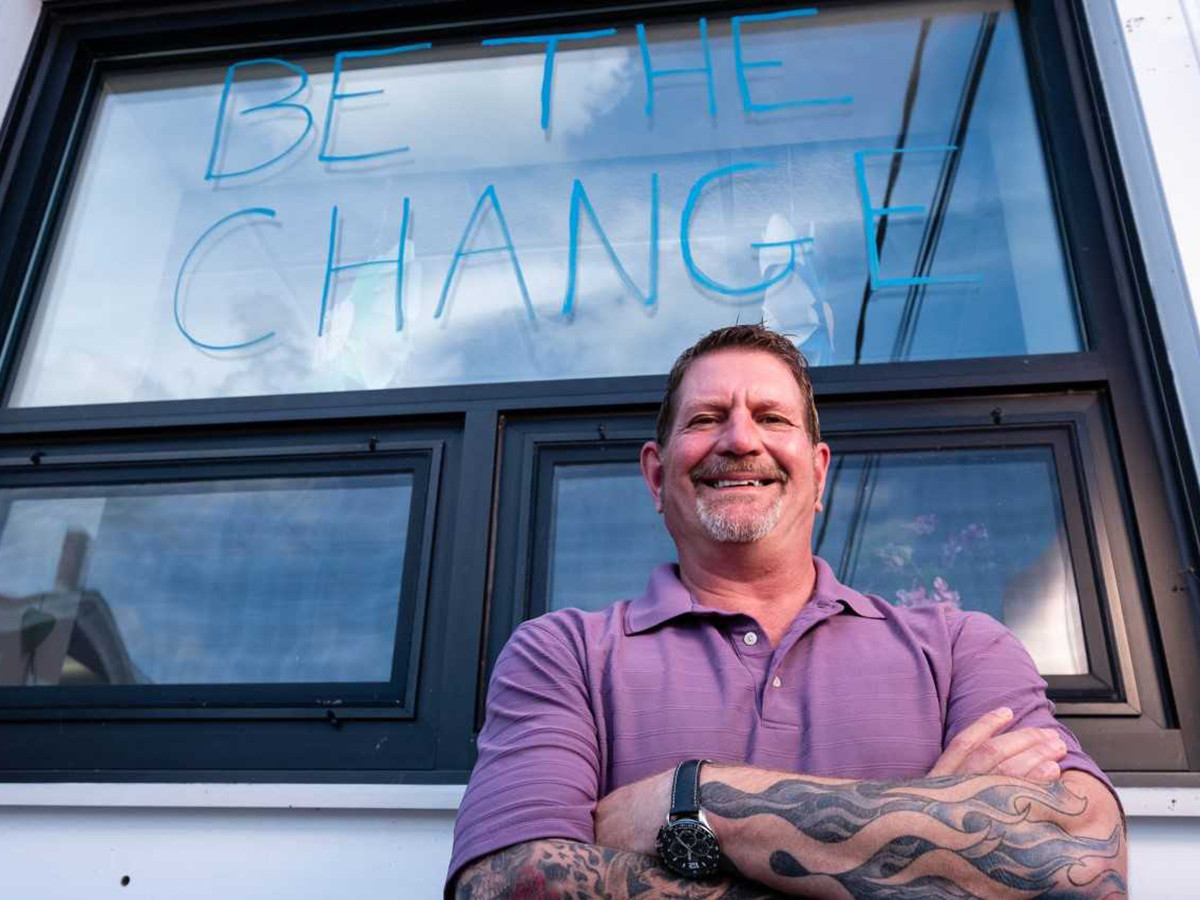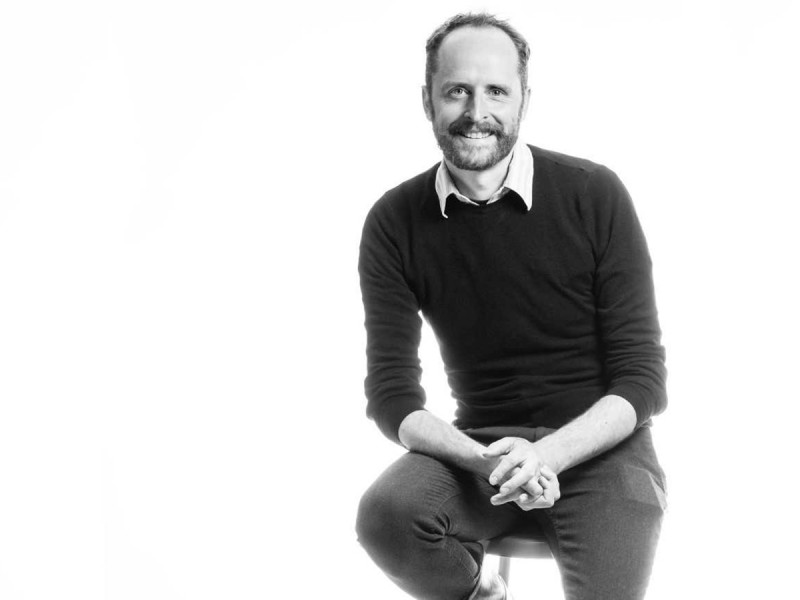
When Hal Porter was 42 years old, he found himself standing at the end of a long dirt driveway, pulling a small wheeled suitcase. Surrounding the driveway were a cluster of tired buildings and a few solitary trees. Beyond that were woods. A sign on one of the buildings in front of him read, “You are no longer alone.” Thinking back on that day, Porter shakes his head. “I never felt so alone in all my life.”
Eight years earlier, Porter was prescribed painkillers following an ACL surgery. He’d been addicted to opiates ever since. “I hear people say it takes everything from you. Looking back on it, it didn’t take anything from me—I freely gave it all away.” Porter grew up in St. Albans and graduated from Bellows Free Academy, and had suffered from alcoholism and used a variety of other substances since he was a teenager. “When opiates came into my life, it spiraled out of control very quickly.” He effectively lost contact with his three children, his marriage dissolved, and he couldn’t hold down a job.
On that lonely day in 2008, he had arrived at the since-shuttered Maple Leaf Farm in Underhill, Vermont because inpatient rehab was a prerequisite for starting a medication-assisted treatment (MAT) program. The month he spent there wouldn’t be a silver bullet, but it would mark the beginning of a long, and often bumpy, and ultimately successful journey. Today, he’s celebrating nine years in recovery.
Porter graduated from CCV last year with a degree in human services and a certificate in substance abuse services. “I didn’t want another job,” he said of his decision to start taking classes at the St. Albans campus. “I wanted an opportunity to start a career where I didn’t have to spend a lot of time on the education part.” He knew he wanted to help others who’d struggled with addiction. But starting out at CCV wasn’t without apprehension. “That was the second time in my life, that very first day of class I’m sitting there and I’m like ‘oh my God, what did I get myself into? How did I get here?’” Three years later: “I can’t express what a wonderful experience my time at CCV was.”
Porter was quick to engage with his peers at CCV, and with his studies. “One of the things I always went into any class with was ‘how do I apply it? How does it apply to me? How does it apply to my life experiences?’ And that’s kind of a cool thing all in itself. At the age of 47 I [brought] a fair amount of life experience with me into the class. I was able to pull from those life experiences. I found that very helpful.”
Today, Porter is a services navigator at Northwestern Medical Center’s (NMC) Comprehensive Pain Clinic, one of the biggest MAT facilities in Franklin County. He began his career at the local Turning Point Center, where he still volunteers almost every day of the week. He’s been active in a number of other local and statewide initiatives, including Governor Shumlin’s work to address the opiate epidemic and now Governor Scott’s Opioid Coordination Council (OCC). He’s certified in self-management and recovery training and is a recovery coach. He served as a mentor at a local transitional house; he’s collaborated with the Howard Center; he’s a friend to almost everyone at the local Turning Point. “For better or worse,” he says, “I’m kind of the face of recovery in St. Albans.”
Porter’s story has a good ending. Sadly, that’s also what makes it unique.
Every week of 2016, two Vermonters died of opiate overdoses. In 2017, the number of deaths rose. The state Opioid Coordination Council puts it this way: “Vermont’s opioid crisis affects all Vermonters across all socio-economic and geographic boundaries. It has devastated families across generations—those who have become addicted, parents and family members, and children…Deaths from opioid-related overdoses increased 159% in Vermont between 2010 and 2016 and continue to climb. More than half (53%) of the 266 children ages 0 – 5 in Vermont custody are there due to opioid abuse issues. The costs to the state in terms of lost productivity and increased social services, treatment and law enforcement are immeasurable.” In Franklin County, where Porter lives and works, the drug-related fatality rate in 2017 topped that of Chittenden County.
In his role at NMC—and through his volunteer efforts—he is taking a whole-systems approach to rehabilitation. “Just dealing with the drug issue is just the tip of the iceberg,” he says. “It’s everything else—it’s transportation…employment, housing, childcare. If your basic needs aren’t getting met, we’re setting you up to fail before you even start.”
Porter’s personal story is part of that whole-systems concept. “I’d like to think that I don’t just talk the talk either; I walk the walk. It’s not a 9-5 job. I can’t tell you the number of times I’ll be in the grocery store and—it never fails—run into somebody…. ‘hey Hal, you got a minute?’ ‘Of course I do, what’s going on?’ And have that conversation 15-20 minutes standing in an aisle.”
Helping others has become a way for Porter to keep moving forward in his own recovery. “In this field of work I will not retire a millionaire, but I will retire with something more important,” he says. “One of the big things for me in recovery is having purpose. Every day I get up and whether it’s work, or whether it’s what I do in my own recovery, I have an opportunity that I might make a difference in somebody’s life today. That’s priceless.”



